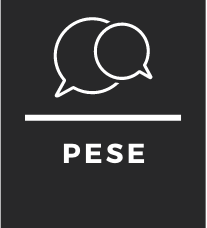Background
The PESE project aims to research the labour market in partner countries and establish the type of English skills employers currently require from their employees. The deliverables of the PESE projects will help to upskill the participants and empower their position in the labour market.
The expectation is that on completion of the project, members of the direct target group (unemployed learners) involved in piloting and those reached through a widespread dissemination strategy will increase their professional English skills and thus boost their employability.
The project will eventually produce an e-course which will obviously benefit those who live in rural areas without access to language schools or face-to-face classes.
The project so far
The project kicked off in November 2020 and work on the IO1 – Handbook Development, began in earnest in January 2021 and was completed in March.
This handbook outlined the skills required by employers for employees in partner counties working in professional white-collar positions such as civil service, finance, logistics, accountancy, and business and executive management and blue-collar manual personnel employed across a range of fields. The research also included feedback from professional language teachers employed by language centres facilitating onsite and online language courses to businesses within the partner countries and internationally.
The next step to PESE project was the development of professional English framework for a curriculum.
Partners conducted research by gathering and analysing the best practices in delivering such training in their national and regional areas. Partners jointly conducted research on good practices, case studies and examples of the successful use of professional English curriculums in the context of improving employability and which demonstrate good practice/case studies from:
1. their national territory
2. their local/regional territory (including examples from their own teaching practices within their organisation if relevant).
3. the internet and online sources.
This research formed the basis of the Framework for a professional English.
With the research conducted by the project partners in mind, a framework for a curriculum has been drawn up to address the skills required by survey participants. Overall, speaking, reading and writing were considered important skills across the industries and businesses surveyed. Within each skill, there were a number of subskills that were required by respondents to the questionaries conducted by the projects British, Cypriot, Maltese, Romanian, Portuguese and Spanish partners.
The impact of the framework will be two-fold: Firstly, VET centres and language schools will be able implement it in the courses their run to boost employability and secondly, the indirect target group of this IO (unemployed learners) will benefit from having a tool uniquely focused on the skills they actually require to succeed in the job market.
At the same time, the output is designed with transferability to different countries, teaching methodologies and cultural contexts in mind. It will transfer well to a vast amount of learning contexts- schools, colleges and training departments
If you would like to learn more about our projects, please stay tuned for our next updates on our website here and on our Facebook page.

